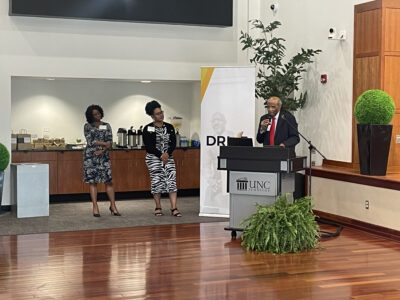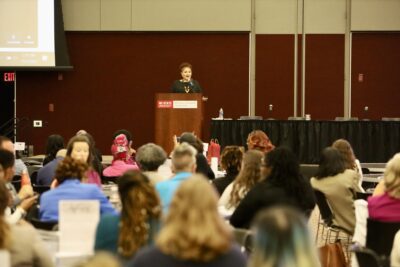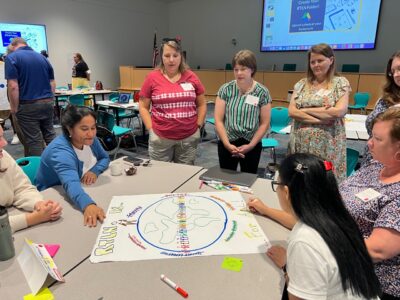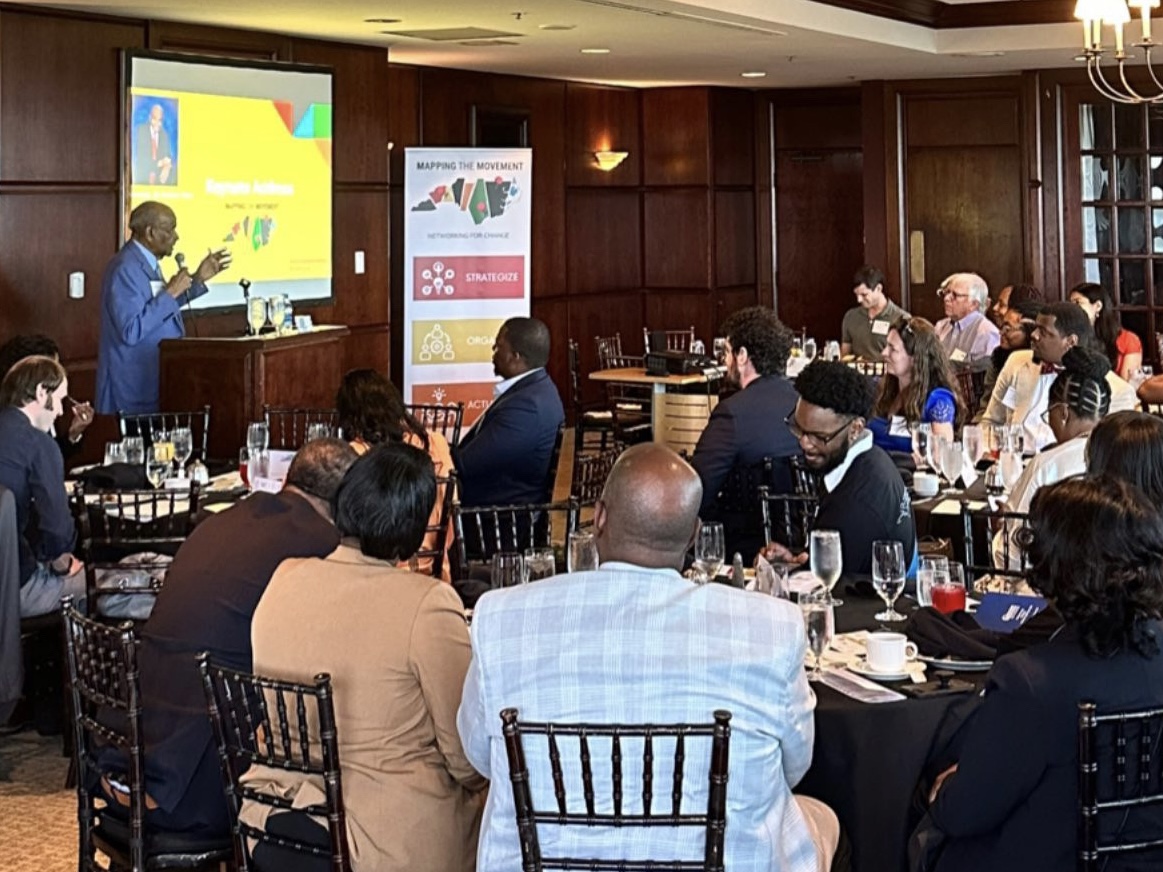
|
|
Last week, the Dudley Flood Center for Educational Equity and Opportunity released its “2023 Equity Forward Report,” which highlights “the work of the Center since its inception to directly address the growing needs due to continued breaches by the state to fully fund and implement the Leandro Comprehensive Remedial Plan,” says a note accompanying the report signed by Dr. Dudley Flood, the Center’s namesake, and Dr. Deanna Townsend-Smith, the Center’s senior director.
Who is Dr. Flood?
For many who work in education in North Carolina, Dr. Flood needs no introduction.
“Dr. Dudley Flood is an educator and champion of school integration in North Carolina. In the years following the Brown v. Board of Education decision that mandated school desegregation in the United States, Dr. Flood traveled to every corner of the state to unite divided communities and work toward integrating our public schools,” says the Center’s website.
Possibility as the greatest motivator
The report was issued with a note from Flood and Townsend-Smith, which says in part:
Equity reflects a state in which every person’s identity, power, opportunity, and potential are fully realized and life outcomes are no longer predicted by characteristics such as race, economics, ethnicity, location, gender, sexuality, nor disability. We fully believe and embrace that the greatest motivator is possibility….we are not there yet. We will get there, but we will only do that if we keep the faith and believe there is a destination. We look forward to being a constant support for our state as we work together to eradicate inequities. Together, we can and will co-create the change we need to see.
— 2023 Equity Forward Report (emphasis as is in the original)
What is the Center’s framework for change?
The Center’s unique framework for change elevates care as foundational to equity.
The framework has three guiding principles — dignity, respect, and well-being — and utilizes six research-based core competencies to build and maintain equity.
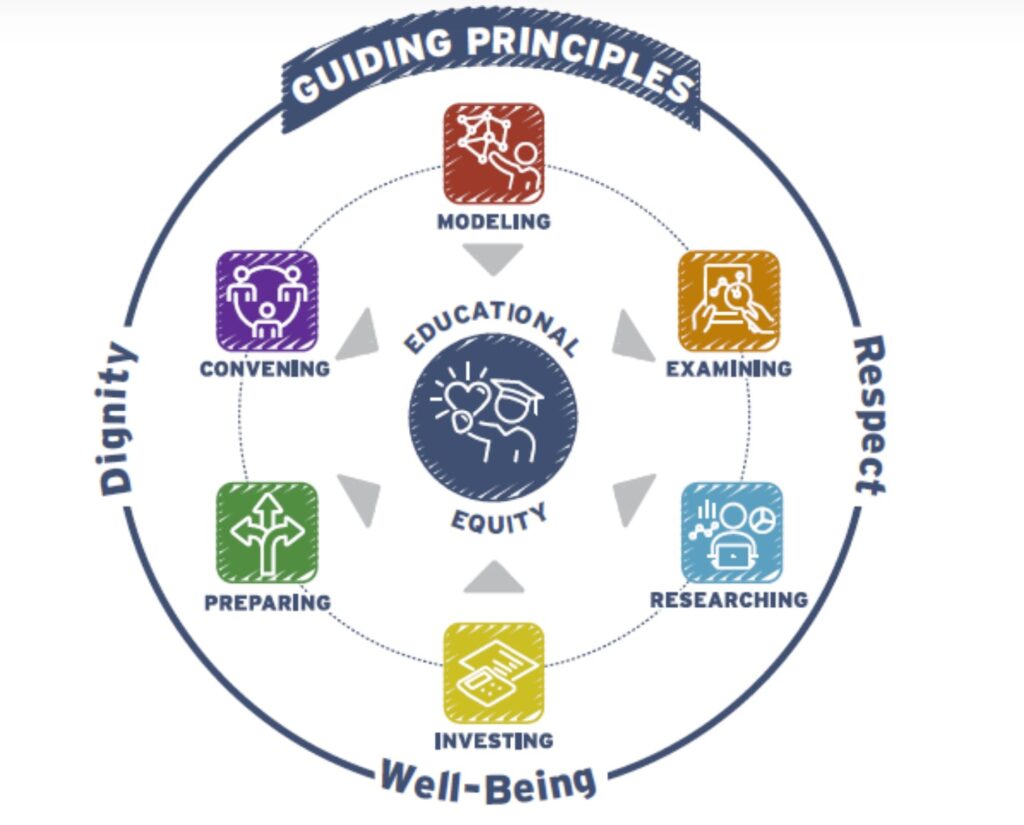
Highlights of the report
Since 2020, the Flood Center has expanded its programming initiatives from its signature event, Color of Education, to 19 programs that support educators, students, and administrators in 42 geographically diverse school districts across the state, says the report.
The Center’s priorities include elevating student voices, recruiting and retaining a diverse educator workforce, advocating for equitable policies and practices, convening diverse stakeholder groups, using data to drive equitable resource allocation, and investing in collective action and impact.
Color of Education
The report says, “Color of Education brings together hundreds of participants each year to build deeper connections across the fields of research, policy, and practice and bring together communities, educators, policymakers, experts, and other key stakeholders focused on developing action-oriented approaches for achieving racial equity in education across the state of North Carolina.”
In October 2023, the Flood Center hosted the 6th Color of Education Summit with more than 800 participants.
Since its inception, Color of Education has drawn 4,300 participants from 37 states to the summit, according to the report.
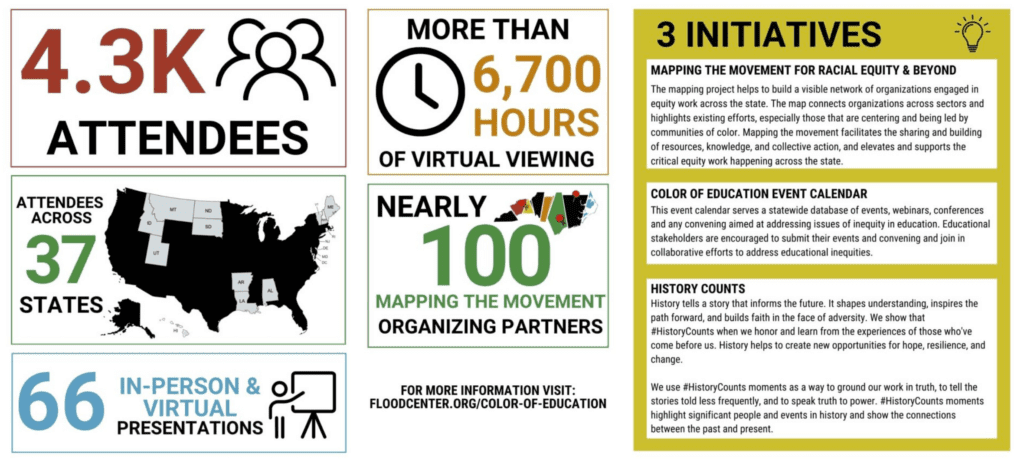
The work of the DRIVE Task Force continues
In October 2023, the DRIVE Task Force — DRIVE stands for developing a representative and inclusive vision for education — voted unanimously in favor of the Flood Center continuing the next phase of the Task Force’s work. Here you can find more information about DRIVE under the leadership of the Flood Center.
Equity profiles for all 115 school districts
The Flood Center’s website includes an equity profile dashboard.
The profiles, according to the report, are composed of metrics identified as equity indicators for each of North Carolina’s 115 school districts, including student demographics, teacher demographics, resegregation data, per-pupil spending, 4-year graduation rates, access to rigorous courses, disciplinary disparities, and special education data.
To see the data by school district, you will need to know the school district codes. Here they are for 2022-23.
The Rural Teacher Leader Network
The Rural Teacher Leader Network (RTLN) brings together educators from rural districts to lead with equity across four pillars: global learning, trauma-informed strategies, policy and advocacy, and teacher leadership. There have been 3 cohorts, including 100 educators, across 18 counties.
Meet the Jeanes Fellows
The first cohort of Jeanes Fellows consists of educators and leaders representing eight school districts who are participating in collaborative, equity-centered professional learning opportunities to sustain progress in diversifying the educator workforce. Learn more about the history of the Jeanes Teachers and meet the current day Jeanes Fellows here.
The work continues
The report notes, “For far too long, educational inequities have persisted in education. We must continue to respond to the need and support students through our continued support of districts, schools, and those serving to educate the young minds of tomorrow.”
Want to connect with the Flood Center? Sign up here for email updates.
You can also connect with the Flood Center on Twitter, now X; Facebook; and Instagram.


